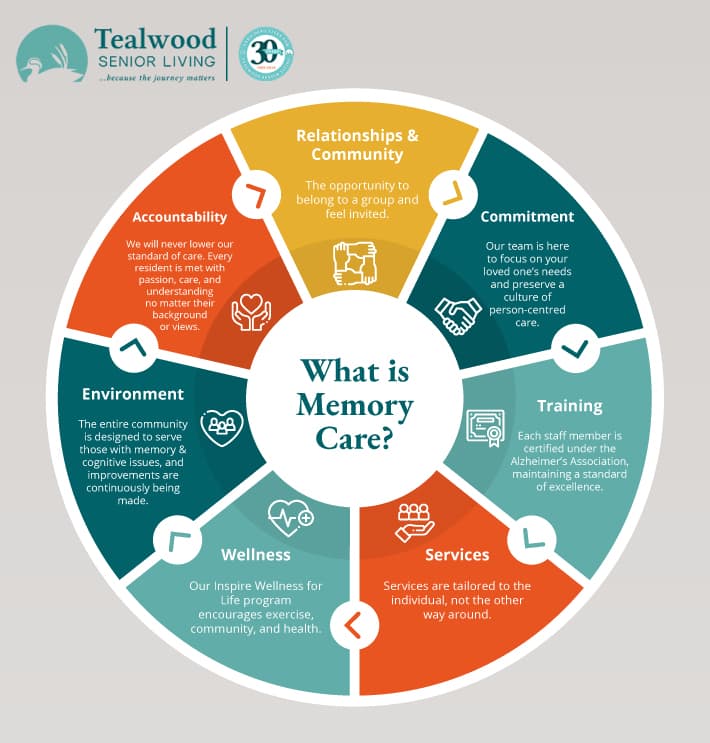Family-Oriented Facilities Offering Personalized Alzheimers Care Charlotte
Expert Tips for Giving Quality Alzheimer's Treatment at Home
Caring for a specific with Alzheimer's disease at home presents special challenges that call for both understanding and calculated preparation. As we discover these specialist suggestions additionally, it comes to be clear that a thoughtful approach can considerably affect the quality of life for both the caretaker and the private receiving care.
Understand Alzheimer's Condition
Alzheimer's disease, a modern neurodegenerative condition, profoundly impacts cognitive feature and day-to-day living tasks. It primarily impacts memory, thinking, and habits, bring about a steady decline in the capabilities necessary for independent living. Early signs often consist of forgetfulness, trouble in problem-solving, and challenges in completing familiar tasks. As the condition advances, people might experience disorientation to time and place, damaged judgment, and changes in state of mind and character.
The etiology of Alzheimer's is intricate, involving the build-up of amyloid plaques and tau tangles in the mind, which interfere with neuronal communication and cause cell death. Threat aspects consist of age, genetics, and way of life options, with most of instances occurring in individuals over 65. Awareness of these aspects is important for caregivers, as comprehending the problem can promote much better assistance and care approaches.
In addition, Alzheimer's illness not only influences the individual but also has substantial psychological and logistical effects for households. Recognizing the stages of the disease enables caretakers to expect obstacles and adjust their method, guaranteeing that the demands of those affected are consulted with concern and understanding. This fundamental expertise is necessary for promoting high quality treatment in your home.
Establish a Routine
Developing a structured everyday regimen can significantly improve the top quality of life for people living with Alzheimer's condition. Establishing constant patterns assists to decrease confusion and stress and anxiety, offering a complacency and knowledge. A day-to-day routine ought to include normal times for dishes, tasks, and rest, which can assist people expect what to anticipate throughout the day.
Integrating easy, familiar jobs right into the regimen can advertise a sense of success and independence. Tasks like horticulture, cooking, and even straightforward household chores can be advantageous. It is important to tailor these activities to the individual's rate of interests and capabilities, ensuring interaction without aggravation.
In addition, flexibility within the routine is essential. While uniformity is essential, enabling adjustments based on the person's state of mind or power degrees can aid maintain a favorable environment. Urge participation in social interactions, whether via family members check outs or neighborhood activities, as these can offer excitement and link.
Enhance Interaction Abilities
Effective interaction is vital for preserving purposeful links with individuals living with Alzheimer's illness. As cognitive capacities decrease, traditional conversation might end up being challenging. Consequently, caregivers need to adapt their interaction strategies to foster understanding and connection.

Show authentic interest by keeping eye call and nodding to recognize their ideas or sensations. Instead, validate their feelings and reroute the discussion delicately if required.
Making use of visual aids, such as photos or created suggestions, can likewise improve comprehension. Motivate involvement in tasks that boost discussion, such as reminiscing regarding previous occasions or browsing photo albums.
Create a Safe Setting
A helpful setting plays a substantial function in the health of individuals with Alzheimer's condition. Developing a risk-free home setting is vital to decrease risks and enhance the high quality of life for both the private and their caregivers. Begin by analyzing the living room for prospective dangers. Get rid of tripping dangers such as loosened carpets, electric cables, and clutter. Guarantee that paths are clear and well-lit to prevent falls.
Mount safety locks on doors and home windows to avoid wandering, which is an usual worry in Alzheimer's individuals. Additionally, think about utilizing non-slip mats in washrooms and mount grab bars for added assistance. Labeling spaces and important things can help individuals browse their surroundings much more quickly.
Emergency situation get in touches with should be plainly posted near phones, and a clinical alert system can provide assurance. Consider making use of childproofing original site measures for dangerous materials and check this sharp objects. Frequently check smoke detectors and carbon monoxide gas alarm systems to guarantee they are working. Overall, tailoring the home atmosphere to the special demands of the individual with Alzheimer's not just advertises safety yet additionally motivates freedom and convenience.
Seek Assistance and Resources
Accessing assistance and sources is critical for people and caregivers dealing with the obstacles of Alzheimer's illness. Caregiving can be overwhelming, both physically and psychologically, and it is important for caregivers to look for assistance to keep their health and give top quality treatment.

Furthermore, exploring reprieve care alternatives can afford caregivers much-needed breaks, permitting them to lower and charge burnout. This might include grown-up day programs or in-home care solutions. Economic aid programs might additionally be offered to assist balance out the costs of treatment.

Final Thought
In recap, giving quality Alzheimer's treatment in the house requires a complex approach. Recognizing the complexities of the illness, developing a structured routine, improving interaction abilities, creating a safe atmosphere, and looking for assistance from readily available resources collectively add to boosted caregiving experiences. Carrying out these strategies not only promotes a sense of self-reliance and accomplishment for people with Alzheimer's however additionally eases caretaker stress, ultimately enhancing the lifestyle for both caregivers and those they support.
Caring for an individual with Alzheimer's disease at home presents unique challenges that require both find more information understanding and strategic preparation.Furthermore, Alzheimer's disease not just influences the specific however likewise has considerable psychological and logistical effects for family members.Developing an organized day-to-day regimen can dramatically boost the top quality of life for individuals living with Alzheimer's illness.Efficient communication is important for maintaining meaningful links with people living with Alzheimer's condition. Alzheimers Care Charlotte. Implementing these strategies not only fosters a sense of independence and success for people with Alzheimer's yet additionally reduces caregiver anxiety, eventually improving the quality of life for both caregivers and those they support